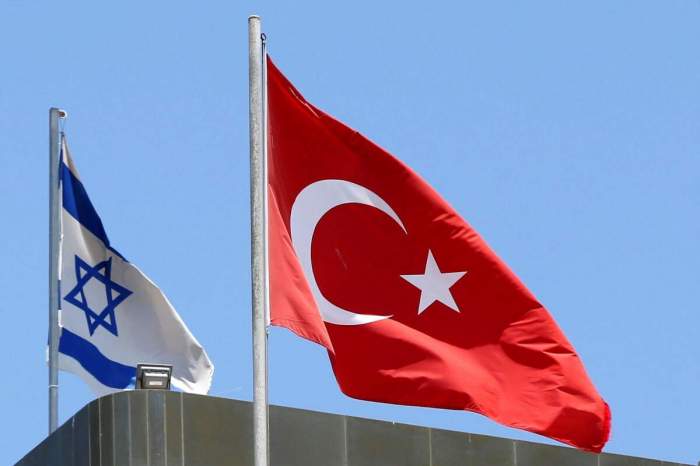The relationship between Türkiye and Israel is a topic that has consistently drawn interest and sparked discussions both in academic circles and among political analysts. Historically, the interactions between these two nations have seen their ups and downs, ranging from periods of strategic partnership to times of profound crisis. Today, amid growing tensions in the Middle East and dynamic developments in Syria, the prospect of an alliance between Türkiye and Israel has become particularly relevant. However, despite shared regional interests, political rhetoric and recent events highlight the complexity and near-impossibility of such a scenario.
The question of a potential Türkiye-Israel alliance is indeed worth exploring, especially within the context of the current Middle Eastern situation. The active dynamics in Syria, confrontation with Iran, and the involvement of various international players in the region create conditions in which cooperation between Türkiye and Israel could be mutually beneficial. Nevertheless, an objective assessment reveals that the creation of such an alliance under current circumstances is highly unlikely.
Historically, Türkiye-Israel relations have been unique for the region. Türkiye was the first Muslim-majority country to establish diplomatic relations with Israel, doing so in 1949. This move was motivated by strategic interests and economic benefits. Over the ensuing decades, the interactions between the two countries went through various phases, with the late 1990s being particularly noteworthy. At that time, relations between Türkiye and Israel reached their peak: military-strategic cooperation flourished, joint exercises were conducted, and Israeli technologies were actively used to modernize the Turkish military. It was a period when Ankara and Tel Aviv viewed each other as strategic partners, a significant development in a region marked by complex geopolitical conditions.
However, the rise to power of Recep Tayyip Erdoğan in the early 2000s and the growing influence of his Islamist-rooted party led to a gradual cooling of relations. The most critical moment came with the 2010 “Freedom Flotilla” incident, after which bilateral ties hit their lowest point. Since then, the relationship has been marked by fluctuating levels of engagement. Despite the restoration of diplomatic ties in 2016 and an increase in trade volumes, recent developments have again strained relations.

Photo: CNN
The tensions have become particularly acute in light of the current conflict in Gaza. Erdoğan’s rhetoric towards Israel has grown increasingly hostile, even threatening a complete severance of ties. While a formal rupture has not occurred, economic indicators already show a decline. Israel’s exports to Türkiye have dropped by 32%, and imports by 15%. Türkiye, which was once among Israel’s top ten trading partners, has fallen to 17th place. Moreover, political tensions affect the perception of both countries as potential partners.
This raises the question: is a revival of relations at the level of strategic partnership or even an alliance possible? The answer is most likely negative. Current political realities and the domestic policies of Türkiye’s leadership make this scenario nearly unfeasible.
Erdoğan, whose policies rely on mobilizing nationalist and religious sentiments, is unlikely to change his stance on Israel, as doing so could harm his domestic popularity.
Nevertheless, certain aspects of interaction between the two countries persist. For instance, despite political tensions, trade between Türkiye and Israel continues, albeit at a reduced level. This indicates that both nations recognize the economic benefits of cooperation, even as political rhetoric remains highly charged.
It is also important to acknowledge the shared interest of Türkiye and Israel in regional stability in Syria and countering Iranian influence. However, these shared interests have not yet translated into joint actions, making talk of any alliance premature. Moreover, the history of their relationship demonstrates that even in the presence of common threats or challenges, domestic political considerations often outweigh geopolitical logic.
In conclusion, a Türkiye-Israeli alliance appears highly unlikely under current conditions. Interactions between the two countries will continue, but primarily in the form of economic ties and minimal diplomatic contact. Significant changes in both Türkiye’s domestic and foreign policies would be required for closer cooperation, which does not seem imminent.
(If you possess specialized knowledge and wish to contribute, please reach out to us at opinions@news.az).
